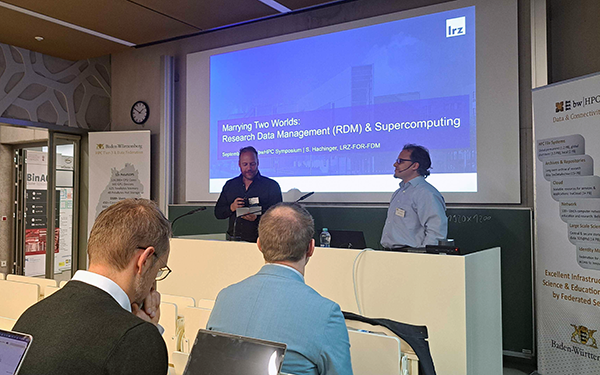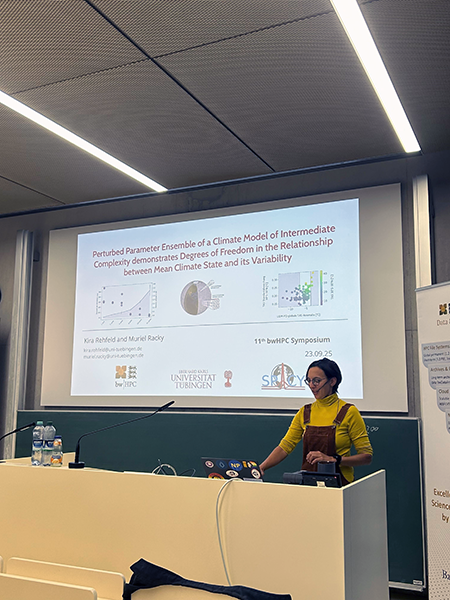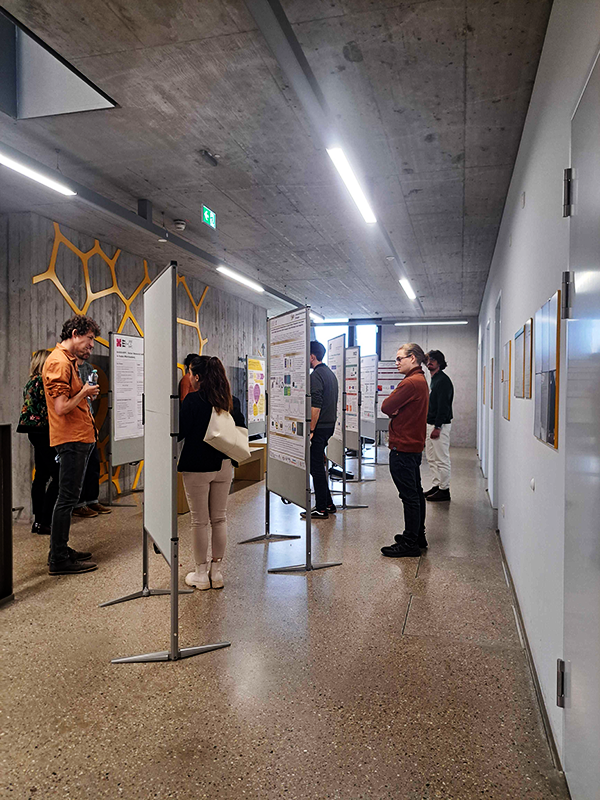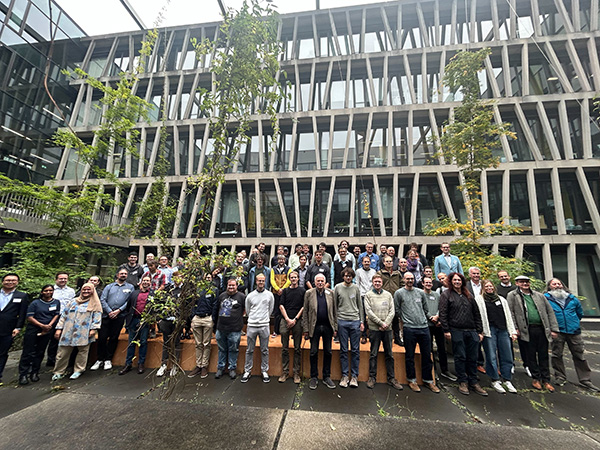11th bwHPC Symposium in Tübingen
Tübingen, September 23, 2025 – The Symposium started with the welcome address from Oliver Roll from the Ministry of Science, Research and the Arts (MWK), a former bioinformatics student from Tübingen. He mentioned that the symposium is a unique feature of bwHPC. A feature that many were happy to attend. 76 researchers, HPC service operators, and bwHPC support staff met in Tübingen to discuss current research and HPC practice at the 11th bwHPC Symposium. The day featured 11 talks and a keynote by Dr. Stephan Hachinger, filling the IFIB lecture hall at the Center for Plant Molecular Biology.
With the Keynote: „Marrying Two Worlds – Research Data Management and Supercomputing“, Dr. Stephan Hachinger from the Leibniz Supercomputing Centre (LRZ) and his partners reflected on 10 years of integrating Research Data Management (RDM) into High-Performance Computing (HPC). His keynote highlighted challenges in standardization, showcased innovative workflows and storage solutions, and explored how to balance FAIR principles with user demands for performance, data safety, and usability - across projects from local to EU scale.
Another focus was on Research Software Engineering (RSE). In "Enabling Scientific Discovery Through RSE Support (Case Studies from bwRSE4HPC)", Dr. Thomas Isensee presented a new service for researchers from all departments. The service is a collaboration between the University of Karlsruhe and the University of Heidelberg. It aims to improve code performance and timesaving. While bwRSE4HPC handles programming, researchers focus on scientific questions. Projects from four weeks to six months are supported. More details will follow soon in a separate News. For further information please visit www.bwrse4hpc.de.
Other topics included quantum and astrophysics, climate modeling, high-energy physics, medical imaging, cyber security, and interactive AI.
Program excerpts:
- Keynote Speech: Marrying Two Worlds: Research Data Management and Supercomputing
- Challenges for modeling and understanding electrochemical interfaces: The case of InP
- Detection of Network Information Hiding Artifacts – A Case for HPC?
- Dynamic correlations of frustrated quantum spins from high-temperature expansion
- Accelerated Monte Carlo Simulation Framework for Patient Motion Correction with a Long Axial Field-of-View Positron Emission Tomography scanner
- Enabling Scientific Discovery Through RSE Support
- On-Demand High Energy Physics Computing: Integrating NEMO 2 via HTCondor and Containerization
- THOR: massively parallel GPU-accelerated radiative transfer (A modern Monte Carlo radiative transfer code for astrophysics)
- Interactive AI on bwHPC (Lessons Learned from Building a Large-Scale Image Analysis Platform)
- Numerical simulation of the airflow inside disc mowers to protect grassland insects
- The effect of triaxiality on the dynamics of triple supermassive black holes in a cosmological context
- Perturbed Parameter Ensemble of a Climate Model of Intermediate Complexity demonstrates Degrees of Freedom in the Relationship between Mean Climate State and its Variability
The symposium showed the broad use of High-Performance Computing (HPC) in Baden-Württemberg. It underscored the need for a powerful, user-centered HPC infrastructure with support for research and teaching. The focus was on exchange between users, operators, and support centers, with concrete projects and results enabled by bwHPC resources. Participation was free and open to researchers from all disciplines.
We thank our local bwHPC team in Tübingen for organizing the event. Special thanks to our collaboration partner bwFDM for their support at Symposium 2025. We hope all attendees enjoyed their time in Tübingen and look forward to welcoming them back for the next bwHPC Symposium in 2026.




